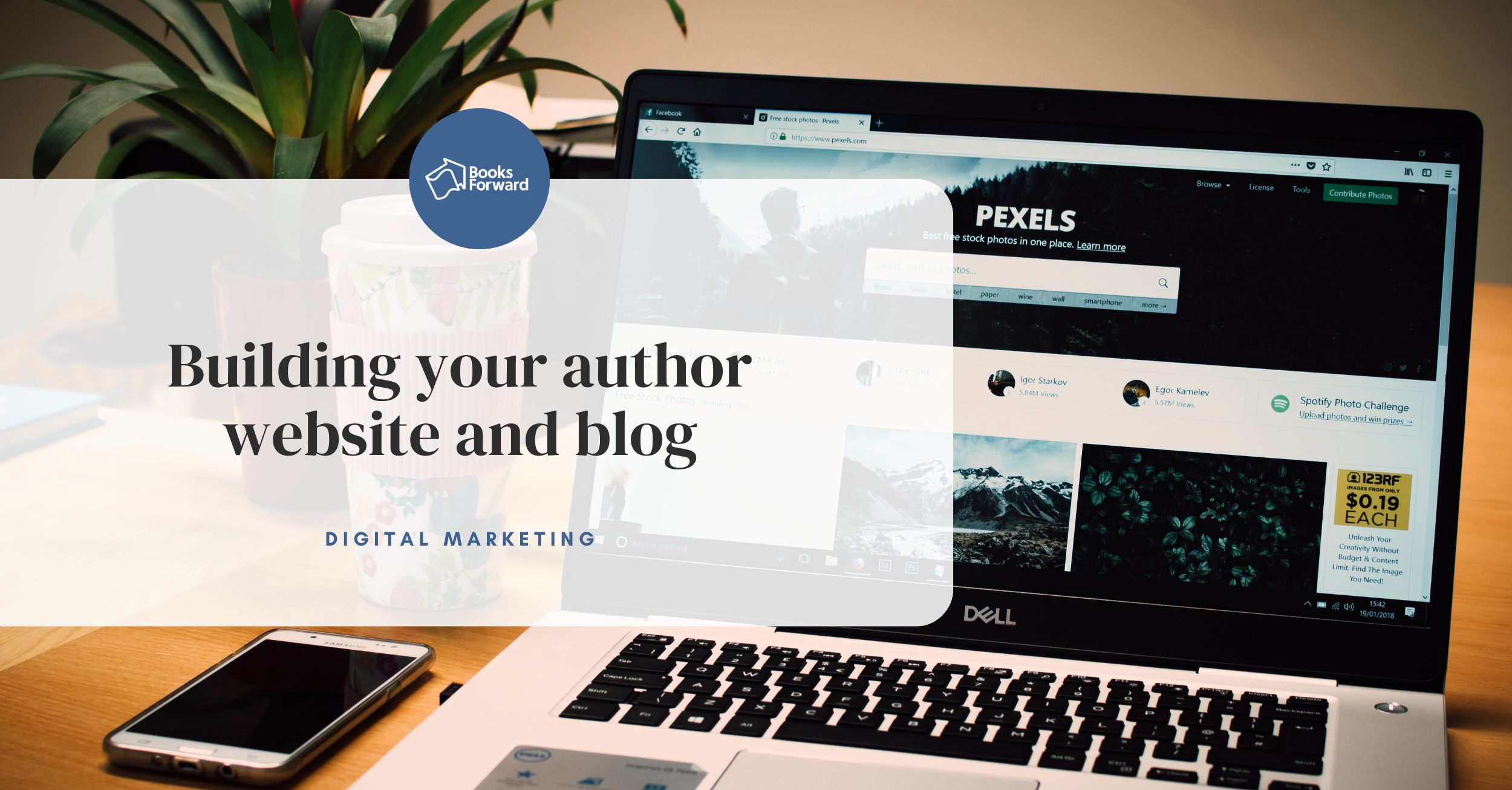As an author, your website is your home base! It’s an important platform for developing your brand and inviting contact from readers, book industry leaders, and media professionals.
You’ll want your website to be:
- Attractive, with a color scheme and tone representing your genre/brand
- Easy to navigate
- Adaptable for use on mobile devices
- Safe and secure (you should obtain an SSL certificate)
Content-wise, you’ll want to make sure your site has:
- Information about you and your books
- Links for purchasing all of your titles (we recommend Bookshop.org, Barnes & Noble, your publisher’s website, and Amazon)
- A blog (this can help with SEO, sending more visitors to your site!)
- Useful resources (press kit, educator guides)
- A press page with links to media coverage for your books
- A call to action (e.g. sign up for my newsletter, subscribe to our podcast, check out my recent interview)
- A contact page so visitors can reach out to you!
Here are some examples of well-done author websites:
- Sci-Fi/Fantasy: Brandon Sanderson , N.K. Jemisin
- Children’s: Linda B. Davis , Kate Messner
- Young Adult: Aiden Thomas
- Historical/Literary: Jasmin Darznik , Susan Choi
- Mystery/Thriller: Mary Keliikoa
- Nonfiction: Seema Yasmin
- Romance: Sarah Adams
- Multiple Genres: Jason Reynolds
One of the main questions we get about author websites is should I have a blog?
We do recommend blogs to most authors. They are especially helpful for authors looking to boost their brand and searchability (SEO) in the long-term. If you are a multi-book author (or if you plan to write more), then a blog will be particularly useful for you!
One important thing to note: ideally, you’ll post on your blog at regular intervals. This can be once every two weeks, once per month, or whatever works best for you. Consistency is key!
Maintaining a blog can:
- Act as a sample of your writing style, enticing prospective readers
- Show an alternate, more personal side of you, helping you connect with readers and fellow writers on a deeper level
- Help you promote upcoming book releases, events, and other “happenings”
- Help you network with other authors through blog-swap promotions
A few ideas for what to explore in your blog:
- Writing craft – tips, sample exercises, lessons learned.
- Personal notes – memoir-style entries about your life, current thoughts and experiences that are shaping your writing career.
- Book features – what you’re currently reading and enjoying.
- Blog-swap – promotional information from an author in your network. Ask them if they’d be willing to promote you on their blog in return!
- Publishing inside scoop – cover reveal, behind-the-scenes look at the editing process, networking tips.
- Side projects – any non-book project you may have: a poem or short story you wrote on your morning bus ride, an art piece, essay, recipe, podcast.
- Promotion – information about your upcoming releases, giveaway links, events.
- Excerpts – exclusive “sneak peek” at your book, whether it’s available for pre-order or currently on sale.
To make the most out of your blog, you can link it to your social media pages, so each post is automatically shared through your other channels.
Keep in mind that starting a blog is a long-term investment. You won’t see thousands of visitors to your blog in the first few months. But if you consistently post engaging content, offer “exclusives” like giveaways and excerpts, and use your writing network to help expand your reach, you’ll see a dedicated audience slowly grow over time, helping your brand for years to come.
For more must-have elements of your website, check out our previous article here: https://booksforward.com/must-have-elements-on-your-author-website/

Jackie Karneth is a publicist with Books Forward is an author publicity and book marketing firm committed to promoting voices from a diverse variety of communities. From book reviews and author events, to social media and digital marketing, we help authors find success and connect with readers.
Interested in what’s possible for your book sales and building readership? Check out our services, tell us your goals, and get a customized publicity campaign tailored just for you.


